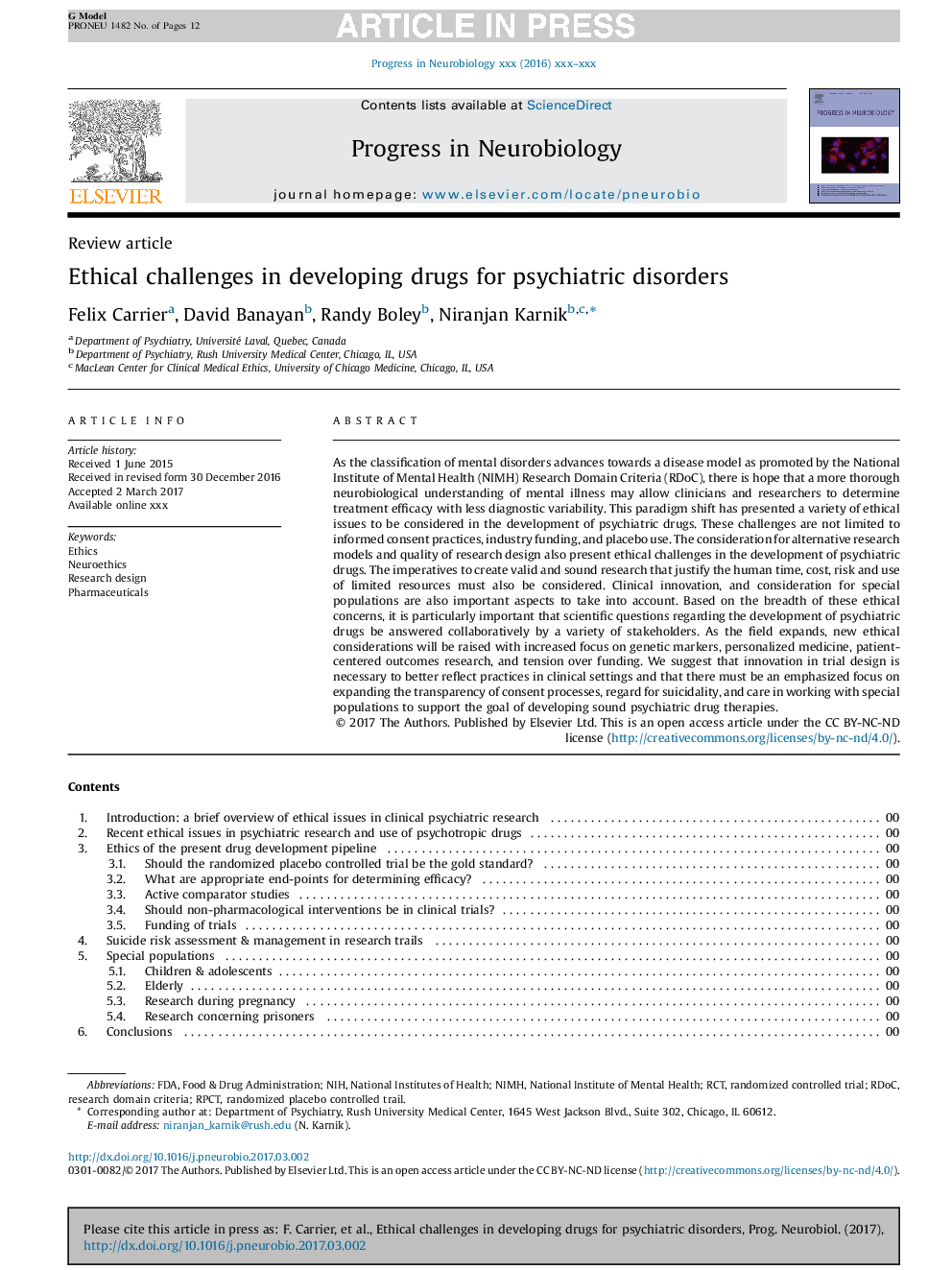| Article ID | Journal | Published Year | Pages | File Type |
|---|---|---|---|---|
| 5739145 | Progress in Neurobiology | 2017 | 12 Pages |
Abstract
As the classification of mental disorders advances towards a disease model as promoted by the National Institute of Mental Health (NIMH) Research Domain Criteria (RDoC), there is hope that a more thorough neurobiological understanding of mental illness may allow clinicians and researchers to determine treatment efficacy with less diagnostic variability. This paradigm shift has presented a variety of ethical issues to be considered in the development of psychiatric drugs. These challenges are not limited to informed consent practices, industry funding, and placebo use. The consideration for alternative research models and quality of research design also present ethical challenges in the development of psychiatric drugs. The imperatives to create valid and sound research that justify the human time, cost, risk and use of limited resources must also be considered. Clinical innovation, and consideration for special populations are also important aspects to take into account. Based on the breadth of these ethical concerns, it is particularly important that scientific questions regarding the development of psychiatric drugs be answered collaboratively by a variety of stakeholders. As the field expands, new ethical considerations will be raised with increased focus on genetic markers, personalized medicine, patient-centered outcomes research, and tension over funding. We suggest that innovation in trial design is necessary to better reflect practices in clinical settings and that there must be an emphasized focus on expanding the transparency of consent processes, regard for suicidality, and care in working with special populations to support the goal of developing sound psychiatric drug therapies.
Keywords
Related Topics
Life Sciences
Neuroscience
Neuroscience (General)
Authors
Felix Carrier, David Banayan, Randy Boley, Niranjan Karnik,
